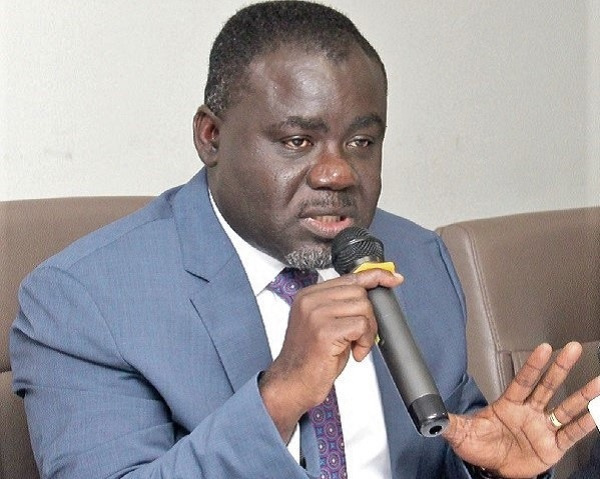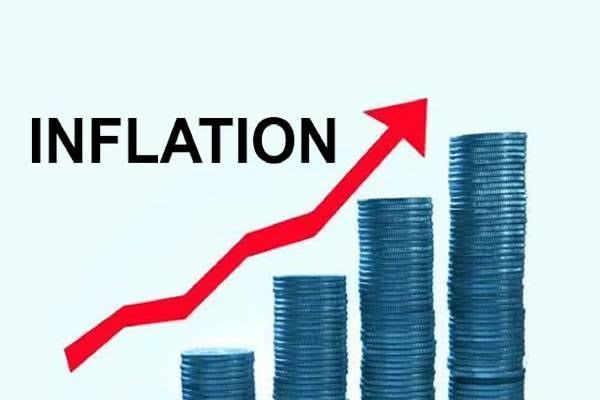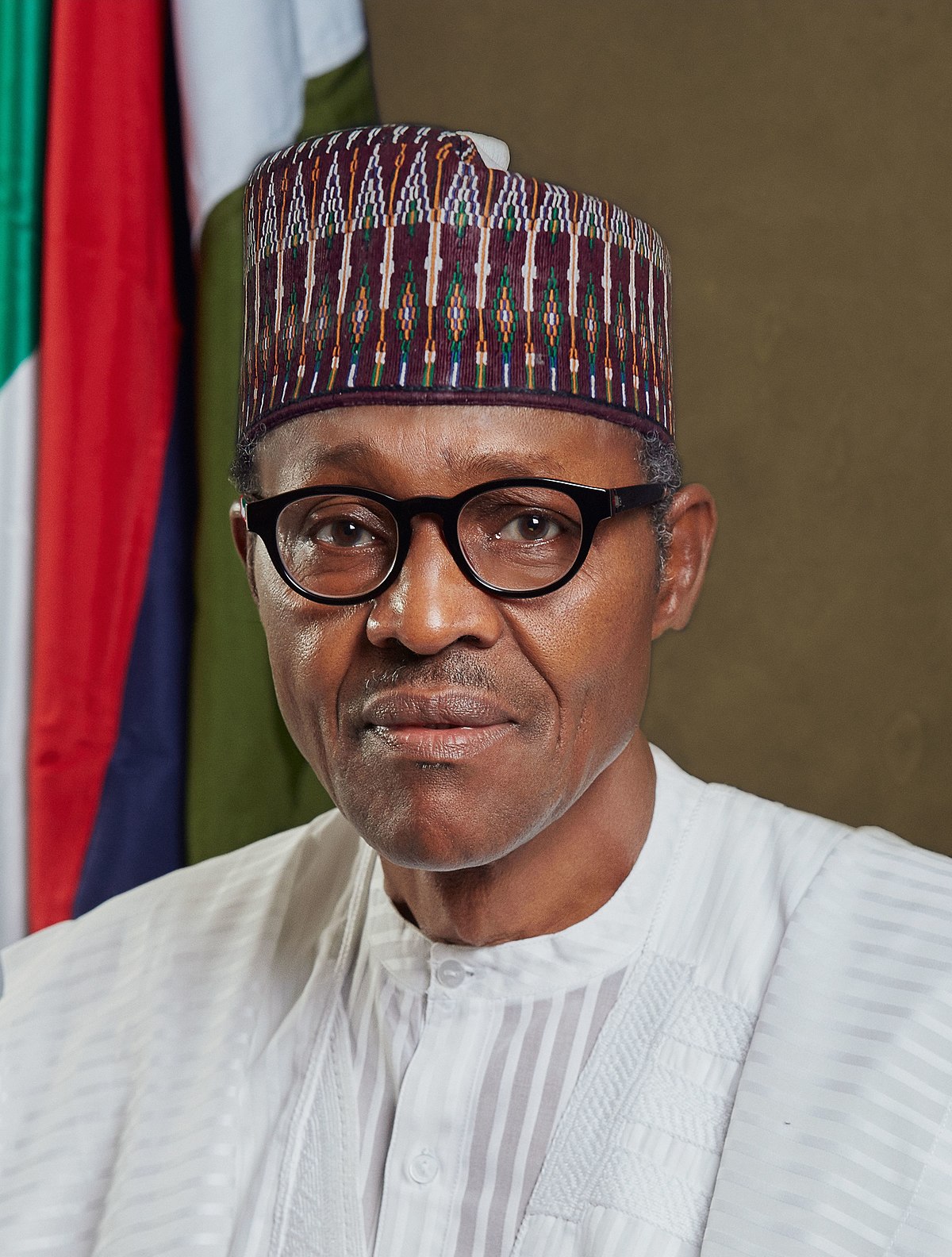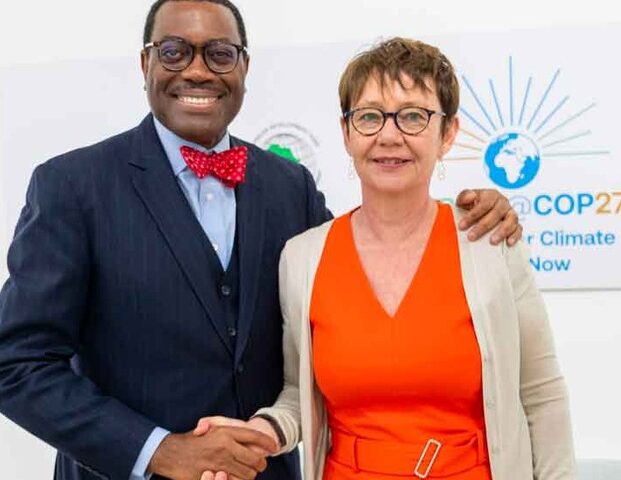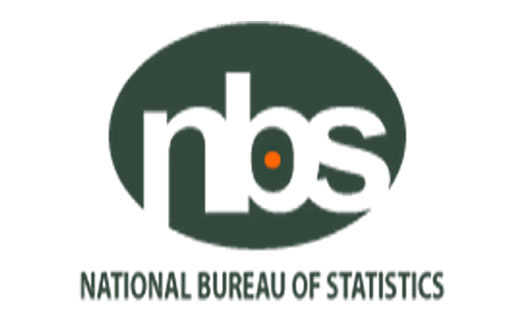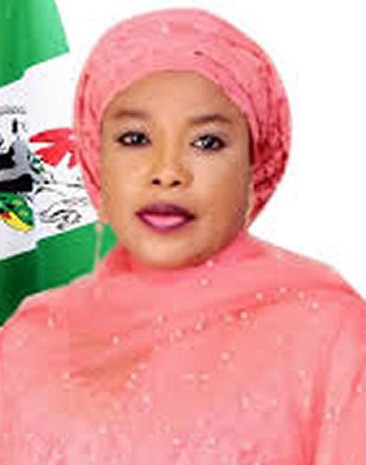All Posts in "News"
Yelutide: FG declares December. 26 & 27, 2022; January 2, 2023 holidays
Inflation rate rises to 21.47% in November
Nigeria joins league of countries to remove Covid-19 restrictions
By Favour Nnabugwu
Nigeria has joined the league of countries that have removed Covid-19 restrictions after than two years after it instituted safety measures to contain the COVID-19 pandemic in the country,
The restriction removed include: No tests before arrivalN; o tests upon or after arrival; No countries banned due to covid-19;N o quarantine periods and No vaccine requirements
Countries that have removed COVID-19 include: Morroco, Egypt, Namibia, South Africa; Benin among othe countries
The President Muhammadu Buhari administration has approved the immediate relaxation of the Safety Measures and Travel Advisory following the recommendations of the Presidential Steering Committee on COVID-19 (PSC).
Secretary to the Government of the Federation and Chairman, Presidential Steering Committee PSC on COVID-19, Mr Boss Mustapha said the decision was based on Clinical and Laboratory evidence of sustained reduction in COVID-19 infection/transmission across the country.
He said; “The relaxed measures include the following:
“Gathering limitations in Public Places: All restrictions with regard to gathering in public places have been lifted. Owners of facilities are strongly encouraged to maintain good environmental/respiratory hygiene, and ventilation.
“Use of Face Mask: The use of facemasks is at individual’s discretion for outdoor and indoor events. However, the elderly, immunocompromised and those with co- morbidities are advised to use facemasks, wash hands with clean water and soap, use hand sanitizers, and avoid large gatherings.
“COVID-19 Travel testing: All pre-departure and post arrival PCR test requirements for all persons who are not fully vaccinated have been suspended. With the suspension of both the preboarding and post-arrival PCR tests, passengers will no longer be required to upload evidence of vaccination on the Nigeria International Travel Portal (NITP). All unvaccinated and partially vaccinated passengers are strongly encouraged to get fully vaccinated.
“Health Declaration Form. A simplified Health Declaration (non-covid-19 specific) shall be completed by all passengers arriving in Nigeria on the Nigeria International Travel Portal (NITP); while provision will be made on arrival for those who were unable to complete this form before departure.
“Finally, the Presidential Steering Committee on COVID-19 (PSC) passionately appeals to Nigerians to ensure that they take their COVID-19 vaccinations as well as booster doses”.
ECOWAS Commission, Spain sign MOU on €1,49m for agriculture, energy
Nigeria remits over $100m community levied to ECOWAS in 2022
By Favour Nnabugwu
The Federal Government of Nigeria has paid over US$100m to the Economic Community of West Africa (ECOWAS) as community levy for 2022.
At the presentation of the Nigeria country report by the Nigerian delegation at the on-going Second Ordinary Session of the ECOWAS Parliament in Abuja revealed
The leader of Nigeria’s Delegation of Parliamentarians to ECOWAS Parliament, Rt. Hon. Ahmed Idris Wase said Nigeria has remitted a total sum of US$100,324,011.33 to the ECOWAS Commission in 2022 and added that the government is committed to fulfilling her financial obligations to ECOWAS, and is making arrangements to pay up the balance for the year.
He said “Nigeria’s commitment to the ECOWAS Protocol on Free Movement of Persons and Goods is completely unwavering. In a bid to gain full realization of the protocol, the Federal Government has introduced the Visa on Arrival (VoA) policy to expedite movement of ECOWAS members through Nigeria’s borders.
“The Federal Government of Nigeria has signed the agreement establishing the African Continental Free Trade Area, AfCFTA. Nigeria has equally demonstrated commitment to a gradual removal of import duties and other non-tariff barriers on imports within the African continent.
To show the Federal Government’s commitment, the Nigerian Ports Authority has commissioned the first Export Processing Terminal (EPT) in the country. This is geared at enabling export-bound cargoes access to the Lagos Seaports without a glitch, in line with AfCFTA objectives. With this move, we believe we will encourage intra-African trade and boost regional development.”
On the 2023 elections, he reported that the political situation in Nigeria is charged-up with electioneering activities and that the Independent Electoral Commission (INEC) has expressed its commitment to free, fair and credible elections.
He mentioned that Nigeria security situation is currently stable, as data for Q3 shows a decline in security but added that the country is still experiencing some security challenges.
“The months of July and August 2022 saw a peak in security related incidents, particularly unprovoked attacks on civilians and security operatives by armed bandits and terrorists.
“The Federal Capital Territory (FCT) was not spared, with the attack on a medium security prison in Kuje, that led to the escape of a number of criminal elements, some of whom are affiliated with the Boko Haram terrorist group.
There was also the attack on the presidential guard brigade that led to the death of six officers and other unprovoked attacks on military checkpoints that have led to loss of lives,” he said.
On the economy, Wase said “the economy is slowly recovering from the combined impact of the Covid-19 pandemic, the Russian-Ukraine war, insecurity, and natural disasters.
Despite the challenges, the Nigerian economy recorded a 3.54% growth in the second quarter (Q2) of 2022. This is a 0.43% increase from Q2 of 2021 where we had a 3.11% growth and a higher showing, compared to the initial market forecasts of 2.60% growth.
“The current growth we see in the economy is driven by the non-oil sector with key sectors being – finance and insurance; transportation; agriculture and manufacturing; information and communication sectors.
“The oil sector, which has been the economic driver and core revenue generator for the country, has shrunken by 12%. Oil production declined to 1.43 million barrels per day in Q2 of 2022, compared with 1.49 million barrels in Q1. The loss in production is largely attributable to oil bunkering and as a result, Nigeria has been unable to meet her OPEC+ quota this year.
However, the country’s oil production is set to improve through the Federal Government’s collaboration with some major stakeholders in the industry to clamp down on oil theft. Thus, improving production and guarantying efficient export operations by the end of November 2022.”
He explained that to cushion the impact of the troubled economy, the Federal Government of Nigeria has leveraged on Nigeria’s international partnerships.
“In this regard, Nigeria and Indonesia have intensified commitments to improving bilateral trade to reach US$4 billion. Both counties have considered developing an ecosystem, including reduction of trade hurdles to improve the capacity of micro, small, and medium enterprises (MSMEs).
Nigeria also supports the realization of the Indonesia/ECOWAS Preferential Trade Agreement (PTA) which is expected to provide major opportunities and benefits for all stakeholders, especially in trade and investment.
Additionally, Nigeria is in talks to broaden her bilateral trade relationship with South Korea to extend beyond gas exports,” he said.
He stated that Nigeria is working assiduously to alleviate the human rights situation posed by nagging security incidents and the flooding disaster.
“Over 3.2 million people in the country have been affected by the floods that have resulted in at least 600 fatalities as of 3rd November 2022.
“The widespread flooding has destroyed over 300, 000 homes and rendered about 1.4 million people homeless, thus increasing the already high number of internally displaced persons within the country,” he said.
COP 27: AfDB, EBRD partner African businesses become more resilient
CAPTION:
L-African Development Bank President Akinwumi Adesina and his counterpart at the EBRD, Odile Reinaud-Basso affirm commitment to climate adaptation to help African businesses become more resilient
By Favour Nnabugwu
African Development Bank President Dr. Akinwumi Adesina and European Bank for Reconstruction and Development (EBRD) President Odile Reinaud-Basso have agreed that their organizations would step up cooperation to enhance resilience among African businesses.
The two development bank heads held talks earlier this month at this year’s global climate summit (COP27) in Sharm El Sheikh, Egypt.
Adesina highlighted that “climate adaptation in Africa was a key condition to preserving economic growth and maintaining social cohesion on the continent.”
Reinaud-Basso confirmed EBRD’s commitment to support the implementation of the Africa Adaptation Acceleration Program (AAAP), an initiative jointly launched in 2021 by the African Development Bank and the Global Center on Adaptation.
The program is mobilizing $25 billion by 2025. These funds will help accelerate climate adaptation action in Africa through initiatives in four priority areas: food security; resilient infrastructure; youth entrepreneurship and job creation; and innovative climate adaptation finance.
Global heating entails rethinking of how infrastructure, cities, and financial systems are designed and operated. This requires effective partnerships between public and private actors and strong engagement with civil society.
By partnering and working closely with government institutions, public utilities, local enterprises and communities, multilateral development banks like the African Development Bank and EBRD can play a catalytic role in developing the approaches to finance that underpin this transformation since financing models use both public and private channels.
Multilateral development banks can also support the development of innovative financing products using blended finance approaches and developing market-based instruments that reward enterprises investing in climate resilience projects.
Both institutions will collaborate to further develop the African Development Bank’s Adaptation Benefits Mechanism. They will explore innovative non-market approaches under Article 6.8 of the Paris Agreement.
The African Development Bank and EBRD will expand their cooperation in all these areas of work in the context of the Africa Accelerated Adaptation Program. They will prioritize support to countries and clients to understand physical climate risks and scale up adaptation investments.
Reinaud-Basso said: “Africa has the potential to become a global leader in climate adaptation solutions and services and we want to expand our cooperation to support Africa fulfill its potential.
Adesina said he and his EBRD counterpart were both fully aligned on the need for multilateral development banks to adjust their business models to respond to the multiple crises they face, including climate change, and the task of building resilient economies.
While preserving their triple-A rating, which must remain the cornerstone of multilateral development banks’ business model, MDBs must find avenues to secure more risk capital to leverage more private sector investments,” Adesina said. He added: “One of these in the short term is the reallocation of a portion of their International Monetary Fund Special Drawing Rights from wealthy countries to MDBs.
These can apply a multiplier factor of 3 to 4 on it. Both the African Development Bank and the EBRD are ready to implement this option, which will offer significant value for money to the countries that will provide SDRs.”
Nigeria’s GDP growth slows to 2.25% in Q3’ 22 – NBS
By Favour Nnabugwu
Nigeria’s Gross Domestic Product, GDP, dropped by 1.78 percent to 2.25 percent in the third quarter of 2022 (Q3’22) from 3.54 percent in recorded Q2’22.
The National Bureau of Statistics, NBS, made this known in its Nigerian GDP report for Q3’22
NBS cited the base effects of the recession and the challenging economic conditions that have impeded productive activities as cause for the reduction in growth.
According to NBS, “Real growth of the oil sector also fell by 10.91 basis points to -22.67 percent QoQ in Q3’22 from -11.77 percent in Q2’22”
This trend reflected in the sector’s contribution to GDP which fell by 0.67 percentage point to 5.66 percent in Q3’22 from 6.33 percent in Q2’22.
Similarly, growth in the oil sector decreased by 0.50 percentage points to 4.27 percent from 3.7 percent in Q3’22.
NBS said: “Nigeria’s GDP grew by 2.25 percent (year-on-year) in real terms in the third quarter of 2022. This growth rate declined from 4.03 percent in the third quarter of 2021.
“The reduction in growth is attributable to the base effects of the recession and the challenging economic conditions that have impeded productive activities
The Q3’22 growth rate decreased by 1.78 percent points from the 4.03 percent growth rate recorded in Q3’21 and decreased by 1.29 percent points relative to 3.54 percent in Q2’22.
However, QoQ, real GDP grew at 9.68 percent in Q3’22, reflecting a higher economic activity in Q3’22 than the preceding quarter.
“For better clarity, the Nigerian economy has been classified broadly into the oil and non-oil sectors.
“The nation in the third quarter of 2022 recorded an average daily oil production of 1.20 million barrels per day (mbpd), lower than the daily average production of 1.57mbpd recorded in the same quarter of 2021 by 0.37mbpd and lower than the second quarter of 2022 production volume of 1.43 mbpd by 0.24mbpd. (Figure 2).
“The real growth of the oil sector was –22.67 percent (year-on-year) in Q3 2022 indicating a decrease of 11.94 percent points relative to the rate recorded in the corresponding quarter of 2021. Growth also decreased by 10.91 percent points when compared to Q2’22 which was –11.77 percent. Quarter-on-Quarter, the oil sector recorded a growth rate of -1.80 percent in Q3 2022.
The Oil sector contributed 5.66% to the total real GDP in Q3 2022, down from the figures recorded in the corresponding period of 2021 and the preceding quarter, where it contributed 7.49 percent and 6.33 percent respectively.
“The non-oil sector grew by 4.27 percent in real terms during the reference quarter (Q3’22). This rate was lower by 1.18 percent points compared to the rate recorded in the same quarter of 2021 and 0.50 percent points lower than the second quarter of 2022.
“This sector was driven in Q3’22 mainly by Information and Communication (Telecommunication); Trade; Transportation (Road Transport); Financial and Insurance (Financial Institutions); Agriculture (Crop Production) and Real Estate, accounting for positive GDP growth.
In real terms, the non-Oil sector contributed 94.34 percent to the nation’s GDP in the third quarter of 2022, higher than the share recorded in the third quarter of 2021 which was 92.51 percent and higher than Q2’22 recorded as 93.67 percent.”
Solar-powered piped water schemes helps Zimbabwe’s urban communities
FCT Minister of State, Ramatu Tijjani Aliyu to get award in Germany tomorrow
By Favour Nnabugwu
The Minister of State for the Federal Capital Territory (FCT), Dr Ramatu Tijjani Aliyu, will be honoured in Berlin, Germany tomorrow
The Award/Gala Night, at which the 52-year-old minister will be bestowed with an award for excellence in public service, will take place at the prestigious Sana Hotel in central Berlin. Located about 700m from the highbrow department store KaDeWe.
The event, organised jointly by the African-German Association (AGA) e.V. and ABG Paulas Germany GmbH, is to recognise the minister for being a shining example of successful women in government in Africa.
“This is based on her distinguished leadership style and the innovations she has introduced in the FCT,” AGA and ABG Paulas said in a joint press statement explaining their decision to choose the minister for the award.

L- Ambrose Okojie (right), Minister of State for the Federal Capital Territory (FCT) of Nigeria, Dr Ramatu Tijjani Aliyu (2nd from left), and officials of ABG Paulus when a delegation went to Abuja to inform the minister of the decision to honour her/Photo: ABG Paulus
Mrs Aliyu will be accompanied on her visit to Berlin by a delegation that includes senior officials of the FCT and the chairpersons of its six Area Councils.
The event, organised jointly by the African-German Association (AGA) e.V. and ABG Paulas Germany GmbH, is to recognise the minister for being a shining example of successful women in government in Africa.
“This is based on her distinguished leadership style and the innovations she has introduced in the FCT,” AGA and ABG Paulas said in a joint press statement explaining their decision to choose the minister for the award.
Mrs Aliyu will be accompanied on her visit to Berlin by a delegation that includes senior officials of the FCT and the chairpersons of its six Area Councils.
The Award/Gala Night is a partnership between AGA, a social, economic and cultural development organisation, and ABG Paulas, a business promotion company, to showcase positive stories out of Africa.
The CEO of ABG Paulas, Ambrose Okojie stated the negative stories about Africa can only be counteracted by showing positive things going on in the continent.
“Despite the often-repeated problems in Africa, people are working tirelessly to change the story of the continent,” Okojie said. “And we have to showcase such persons as emblems of hope for Africa.”
Okojie, whose company has been organising trade missions between Nigeria and Germany for more than twenty years, said the investment opportunities in Africa are many and the award scheme is one of the ways ABG Paulus and AGA want to promote the continent as a place to do business and invest.
The Chairman of AGA, Michael Iyare revealed his organisation is co-staging the event because “it’s important to honour Africans who have shown remarkable leadership qualities in their areas of service”.
The ceremony will be graced by the Ambassador of Nigeria to Germany, HE Yusuf Maitama Tuggar, members of the diplomatic corps in Berlin and directors of German companies doing business in Africa.
Others expected event at the event include the African businessmen and women, leaders of major German-African organisations and members of the African community.
“Our main appeal to those interested in this event is that they should be punctual as we will commence promptly at 6pm because of the many dignitaries who will grace the occasion,” Okojie said. “If you would like to join us, please be there on time!”

